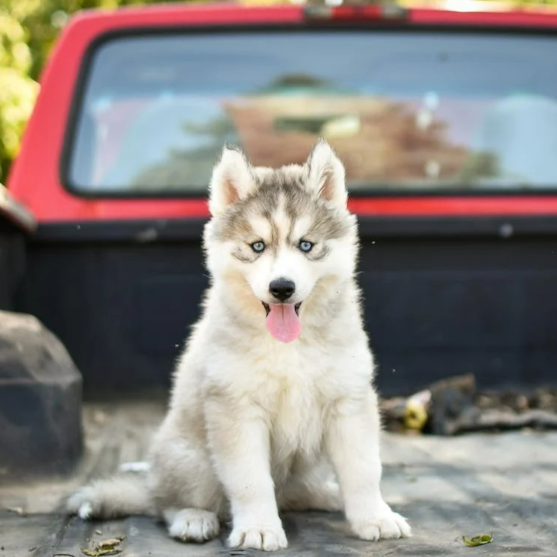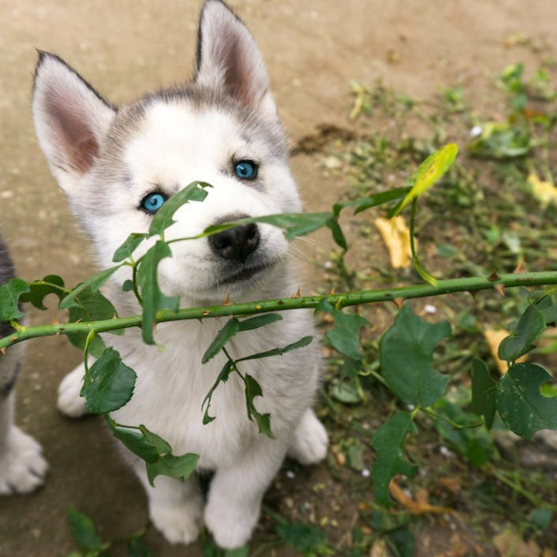Pomsky Breed Information


The Pomsky, a strikingly adorable and often pint-sized powerhouse, is a designer breed that has gained immense popularity in recent years. A cross between the energetic Siberian Husky and the charming Pomeranian, Pomskies bring the best of both breeds into a compact, often fluffy, package. Known for their playful personalities, strikingly beautiful coats, and sociable demeanor, these dogs are loved by many and make for an excellent addition to a variety of households.
Aptly embodying the saying 'a small dog with a big personality', Pomskies are known for their lively spirit, curiosity, and penchant for fun. The energy level of a Pomsky can range from moderate to high, largely inheriting this trait from their Siberian Husky parent. Despite their small stature, these dogs are energetic, love to play, and need plenty of mental and physical stimulation to keep them happy and healthy.
While their precise characteristics can vary, the typical Pomsky is intelligent, eager to please, and highly trainable, much like their Pomeranian parent. The breed often inherits the Pomeranian’s love for being the center of attention and the Husky’s fondness for activity, making them a vibrant and engaging pet.
Characteristics
- Energetic and Playful: Pomskies are known for their playful, energetic personalities, inherited from both the Siberian Husky and Pomeranian parent breeds. They have a zest for life and enjoy various games, agility training, and interactive playtime.
- Intelligent and Quick Learners: This breed possesses a sharp intellect, which makes them quick learners. However, their intelligence also means they need regular mental stimulation to keep boredom at bay. Puzzle toys, agility training, and trick training are all good ways to engage their active minds.
- Social and Affectionate: Pomskies are known for their affectionate nature and thrive on social interactions. They are great companions and form strong bonds with their human families. Early socialization can help them grow into well-rounded, sociable adult dogs.
- Adaptable: Pomskies are quite adaptable and can adjust to various living conditions. While they can be comfortable living in an apartment, they still need their daily dose of exercise and playtime.
- Independent: Despite their sociable nature, Pomskies can also show an independent streak, inherited from their Siberian Husky and Pomeranian parents. This characteristic makes it essential to maintain consistent, positive reinforcement during training.
- Double-Coated and Beautiful: Pomskies boast a beautiful double coat that can vary in color and patterns. They usually have a striking resemblance to their Siberian Husky parent but in a smaller, more manageable size.
- Vocal: Pomskies are often quite vocal, a trait inherited from both parent breeds. They can express a range of sounds, from barks to howls, and it's essential to train them to control excessive vocalization.
- Prey Drive: Pomskies can sometimes display a strong prey drive, a trait inherited from their Siberian Husky parent. This characteristic makes recall and leash training especially crucial for their safety during outdoor activities.

Appearance
The appearance of the Pomsky can vary widely due to the significant differences in size and features between their Pomeranian and Siberian Husky parent breeds. Nevertheless, the breed is often characterized by its stunning coats, bright eyes, and compact size, making it irresistibly adorable to many dog enthusiasts.
A typical Pomsky is small to medium in size, usually weighing between 20 to 30 pounds, but some can be smaller or larger depending on the specific genetic contributions of the parent breeds. Their stature makes them ideal for both apartment living and larger homes, as long as they receive sufficient exercise.
One of the most striking features of the Pomsky is their coat, which is often fluffy, and soft, and comes in a variety of colors and patterns. Colors can range from black and white, similar to the Siberian Husky, to sable, brown, cream, or a blend, much like the Pomeranian. Their coat is usually thick and double-layered, providing excellent insulation in cold weather, but also requiring regular grooming to keep it healthy and looking its best.
The Pomsky's eyes are another captivating feature of the breed. Much like the Siberian Husky, some Pomskies have blue eyes, while others may have brown, green, or even one blue and one brown eye, a condition known as heterochromia. Their eyes are typically almond-shaped and full of intelligence and curiosity.
Their ears, much like the Pomeranian's, are typically erect, adding to their alert and lively expression. Their face often holds a fox-like resemblance, combining the Siberian Husky's mask-like markings with the Pomeranian's fluffy ruff.
Temperament
The temperament of the Pomsky, like any mixed breed, can vary depending on which parent breed's traits are more dominant. However, they are typically known for their lively, intelligent, and outgoing personality. A Pomsky often displays a blend of the affectionate, playful nature of the Pomeranian and the adventurous, energetic spirit of the Siberian Husky.
Pomskies are known for their love of human companionship. They form strong bonds with their families and often enjoy being the center of attention. This breed thrives on interaction and engagement, and they are often happiest when involved in family activities. Although they enjoy companionship, they also have an independent streak, a trait inherited from both the Pomeranian and the Siberian Husky. This means that while they love to spend time with their family, they also appreciate having time to explore and play on their own.
Intelligence is a hallmark trait of the Pomsky breed. They are quick learners and can pick up new commands and tricks with relative ease. However, this intelligence can sometimes translate into a certain level of stubbornness, making consistent, patient, and positive reinforcement training methods particularly effective.
In terms of sociability, Pomskies often get along well with other animals, especially when properly socialized from a young age. They are typically friendly towards strangers but can sometimes be a bit reserved, a characteristic more commonly seen in the Siberian Husky parent breed.
Care
Grooming
The grooming needs of a Pomsky can be quite significant, primarily due to their thick, double-coated fur inherited from both the Pomeranian and the Siberian Husky parent breeds. Regular grooming not only keeps your Pomsky looking their best but also promotes skin health and reduces shedding around your home.
Pomskies typically shed their undercoat twice a year, a process known as "blowing the coat". During these periods, it may seem like your Pomsky is shedding more than usual, but this is a normal part of their grooming cycle. Regular brushing during these times can significantly help manage the shedding and keep your Pomsky's coat healthy.
For general maintenance, brushing your Pomsky's coat several times a week can prevent matting and tangles, promote skin health, and distribute natural oils throughout the coat. A slicker brush or a rake specifically designed for double-coated breeds is typically the most effective tool for this task.
Bathing your Pomsky should be done as needed, usually every few months, or whenever they get particularly dirty. Overbathing can strip the natural oils from their coat, leading to dry skin and fur. Always use a dog-specific shampoo that is gentle on their skin and coat.
In addition to coat care, other aspects of grooming are essential for a Pomsky's overall health. Regularly check and clean their ears to prevent infection, keep their nails trimmed to a comfortable length, and maintain oral hygiene by brushing their teeth or providing dental chews.
Exercise Needs
Pomskies, inheriting the active and energetic nature of their parent breeds, particularly the Siberian Husky, require a good amount of exercise to keep them happy and healthy. Despite their small to medium size, these dogs pack a punch when it comes to energy and enthusiasm, and will thrive with owners who can match their zest for life.
Daily exercise is essential for a Pomsky to burn off energy and to maintain optimal physical health. A brisk walk or two each day, combined with some playtime, can generally meet their needs. They are quite playful and enjoy engaging activities like fetch, tug-of-war, and even agility training.
Beyond physical exercise, mental stimulation is equally important for this intelligent breed. Training sessions, puzzle toys, and interactive games can all help to keep a Pomsky mentally engaged. These activities can also strengthen the bond between you and your pet, while keeping potential problem behaviors, often stemming from boredom, at bay.
Despite their adaptability to different living environments, Pomskies are not ideal for sedentary lifestyles. They need space to run and play, but if space is limited, like in an apartment setting, additional walks or trips to the dog park can supplement their exercise needs.
Remember that while exercise is crucial, it's also essential to provide appropriate rest and downtime to prevent overexertion. Regular vet check-ups are also necessary to ensure your Pomsky is in their best shape and not overdoing their workouts.
Health
Pomskies are generally healthy dogs, but like all breeds, they're prone to certain health conditions. Being a mixed breed, a Pomsky may inherit health issues that are common in either the Siberian Husky or the Pomeranian lineage.
One of the common health issues that Pomskies can inherit is dental problems, which is typical for many small breeds. Regular dental check-ups and maintaining good oral hygiene can help prevent such issues.
Eye conditions are also something to be aware of in Pomskies. Both Siberian Huskies and Pomeranians are prone to different types of eye disorders, including cataracts, especially during their golden years. Regular vet check-ups and eye examinations can help identify these conditions early and help maintain your Pomsky's eye health.
Another potential health issue is hypothyroidism, a condition that affects the thyroid gland's ability to produce essential hormones. Signs of this condition can include weight gain, lethargy, and changes in the coat's condition.
While the above conditions can occur in Pomskies, it's important to remember that not every Pomsky will get these diseases. Regular veterinary care and a good diet can go a long way in ensuring your Pomsky leads a healthy and happy life.
Lifespan
The lifespan of a Pomsky can vary, but generally, these charming companions enjoy a lifespan similar to their Pomeranian and Siberian Husky parents, typically living between 12 to 15 years. This longevity can be attributed to their mixed-breed status, often resulting in a broader genetic diversity which can contribute to overall health and longevity.
While their lifespan is fairly long for a dog of their size, a Pomsky's health and longevity are influenced by several factors, including genetics, diet, exercise, and regular veterinary care. A well-cared-for Pomsky can often enjoy a robust life well into their senior years.
Proper diet plays a crucial role in a Pomsky's lifespan. Providing a balanced diet, rich in quality proteins, healthy fats, and a variety of fruits and vegetables can contribute to their overall health and longevity. It's also important to avoid overfeeding, as obesity can lead to a host of health issues and potentially shorten their lifespan.
Exercise is another key factor that can contribute to a longer, healthier life for your Pomsky. Regular physical activity helps maintain a healthy weight, promotes cardiovascular health, and can even help keep health problems like joint issues at bay.
Regular veterinary care is also vital in ensuring a long and healthy life for your Pomsky. Routine check-ups can help detect any potential health issues early, allowing for timely treatment and management.
Training
Training a Pomsky can be an enjoyable and rewarding experience, thanks to their high intelligence, eagerness to please, and energetic personality. However, it's important to note that they can also inherit the independent streak seen in both Pomeranian and Siberian Husky breeds, which can sometimes pose challenges in training. But with consistency, positive reinforcement, and patience, training your Pomsky can help them become a well-mannered, balanced, and happy dog.
Early socialization and puppy training classes are highly recommended for Pomskies. Introducing them to different people, places, sounds, and experiences can help them grow into a well-adjusted adult dog. Training classes can also help them learn basic obedience commands while providing opportunities for socialization.
Positive reinforcement is key in training a Pomsky. Rewarding them with treats, praise, or playtime whenever they exhibit good behavior can encourage them to repeat those actions. This breed responds well to such positive training methods and can excel in learning new tricks and commands.
Because Pomskies are intelligent and active, they also need mental stimulation. Incorporating puzzle toys, agility training, and trick training into their routine can help keep them mentally engaged and satisfied.
Pomskies, like their Siberian Husky parent breed, can exhibit a strong prey drive, making it crucial to work on reliable recall commands and leash training. This can ensure they stay safe during outdoor activities.
Lastly, crate training can be beneficial for Pomskies, especially in house training and providing them with a safe and comfortable space of their own. However, it's important to ensure that the crate is never used as a form of punishment.
While training a Pomsky may come with its own set of challenges due to their energetic and independent nature, with the right approach, consistency, and lots of positive reinforcement, they can learn quickly.
History
The history of the Pomsky is relatively short, as it is a designer breed that emerged only within the last few decades. Originating in the United States, the breed was created through the intentional cross-breeding of the Siberian Husky and the Pomeranian, two breeds renowned for their beauty and vibrant personalities.
The exact date of the breed's creation is not well-documented, but it is widely believed that the first intentional Pomsky breeding took place in the early 2000s. The goal was to create a small to medium-sized dog that possessed the stunning coat and vivacious personality of the Siberian Husky, coupled with the smaller size and affable nature of the Pomeranian.
One significant challenge in the early development of the Pomsky was achieving consistent size and characteristics due to the considerable size difference between the parent breeds. This was managed through careful breeding techniques, primarily involving a female Siberian Husky and a male Pomeranian, to ensure safe and successful breeding practices.
As the Pomsky gained attention and popularity, several breed clubs were established, the most notable being the Pomsky Club of America (PCA), which was formed to maintain breed standards and promote responsible breeding practices. As of 2023, the Pomsky has not been recognized by major kennel clubs like the American Kennel Club (AKC), primarily due to its relatively recent development as a breed.

